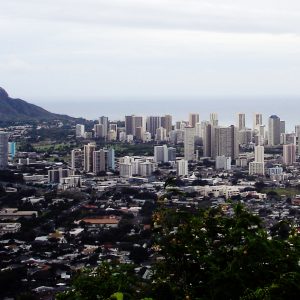The Stream, September 7: Asia Faces Major Water Security Challenge, Report Finds
The Global Rundown
A study by the Asian Development Bank called the Asia-Pacific region a “global hot spot” for water insecurity, warning that billions of people on the continent could live in water-stressed areas by mid-century. The Ivory Coast has evicted thousands of cocoa farmers from its national parks over the past two months in an effort to stop the destruction of forests, which has been linked to changing rainfall patterns. A new law in New York requires schools to test for lead in their drinking water. Israel announced a partnership with the Netherlands to improve water and energy supplies in Gaza. A strong earthquake in Oklahoma again raised questions about fracking wastewater disposal. A company in Bangladesh hopes to build a solar power plant on an island in the Teesta River.
“We have no battle, no qualms with the people of Gaza. The first step is to improve the supply of energy and water to Gaza, including laying a gas pipeline.” –Prime Minister Benjamin Netanyahu of Israel, announcing a partnership with the Netherlands that could double electricity generation in Gaza and provide it with more reliable supplies of water. (Reuters)
By The Numbers
5.6 Magnitude of a major earthquake that hit Oklahoma over the weekend, inciting further concerns about the underground disposal of wastewater from fracking operations. Scientists have previously linked the flurry of seismic activity in the state since 2009 to oil and gas development. Bloomberg
53,000 people Number who have been evicted from the Ivory Coast’s Mont Peko National Park since July, many of them cocoa farmers, according to estimates by the United Nations. The mass displacement is meant to enforce protections for the country’s forests, where severe degradation has changed rainfall patterns and threatens biodiversity. Reuters
30 megawatts Capacity of a solar power plant planned for a char island in the Teesta River in Bangladesh. Chars are created by sediment deposits, and many are constantly forming and eroding. The company behind the solar project, however, notes that this particular island has existed for 70 years and insists it will be safe from flooding. The Third Pole
Science, Studies, And Reports
Climate change and growing demands for water from agriculture, industry, and cities could result in 3.4 billion people in Asia living in water-stressed areas by 2050, according to a recent report by the Asian Development Bank. The report called the Asia-Pacific region “the global hot spot for water insecurity,” and urged action to improve water efficiency, water reuse, and groundwater management. SciDevNet
On The Radar
A new law in New York will require schools to test their water for lead and, if levels are too high, implement corrective measures. The first tests will be completed by the end of October, and subsequent tests will be conducted every five years. Associated Press
A news correspondent for Circle of Blue based out of Hawaii. She writes The Stream, Circle of Blue’s daily digest of international water news trends. Her interests include food security, ecology and the Great Lakes.
Contact Codi Kozacek




